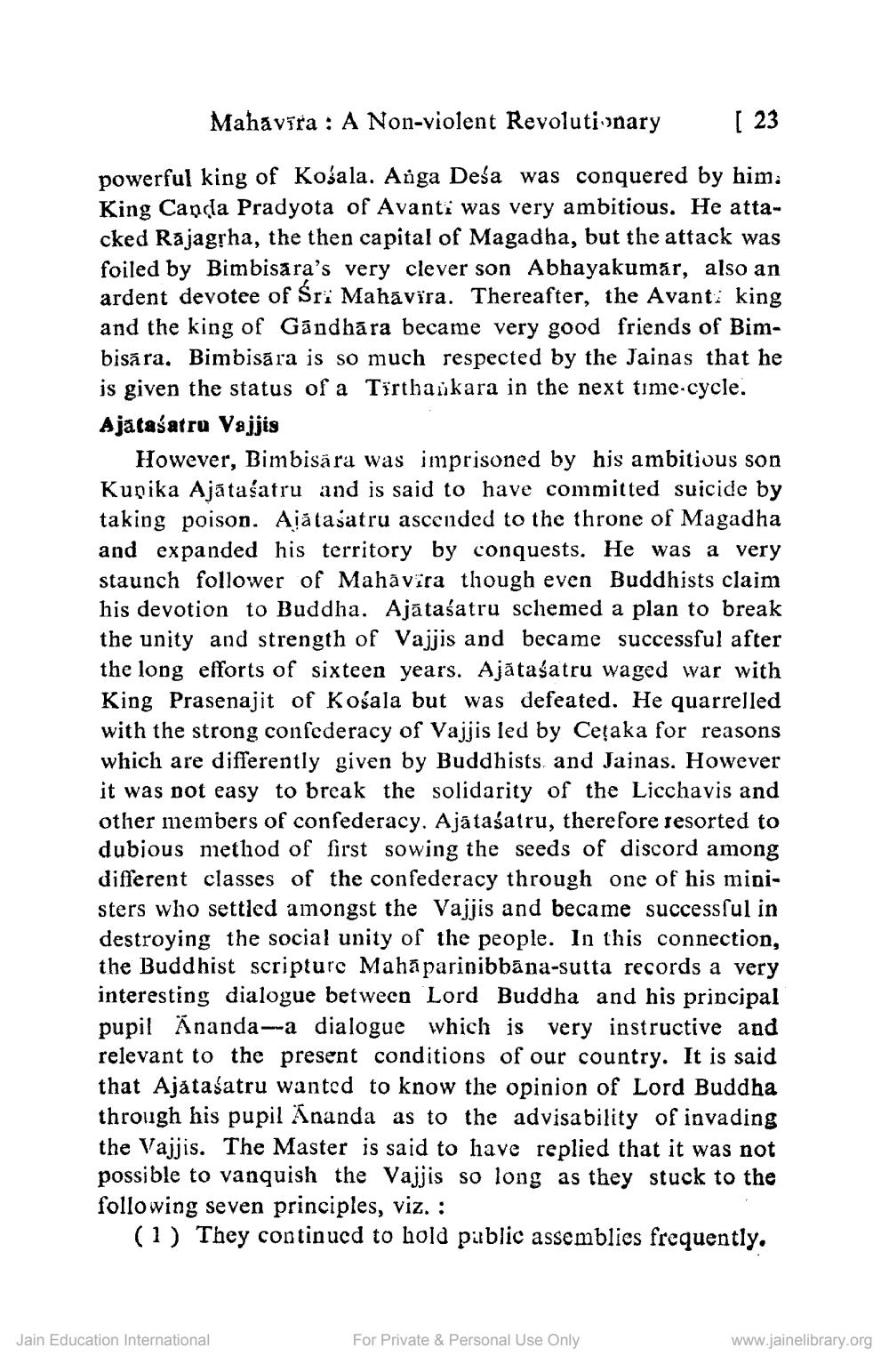________________
Mahavira : A Non-violent Revolutionary
[ 23
powerful king of Košala. Anga Desa was conquered by him. King Canda Pradyota of Avanti was very ambitious. He attacked Rajagrha, the then capital of Magadha, but the attack was foiled by Bimbisara's very clever son Abhayakumar, also an ardent devotee of Sri Mahāvīra. Thereafter, the Avanti king and the king of Gándhāra became very good friends of Bimbisára. Bimbisára is so much respected by the Jainas that he is given the status of a Tirthaukara in the next tine-cycle. Ajátaśatru Vajjis
However, Bimbisāra was imprisoned by his ambitious son Kupika Ajátaśatru and is said to have committed suicide by taking poison. Ajātasatru ascended to the throne of Magadha and expanded his territory by conquests. He was a very staunch follower of Mahāvīra though even Buddhists claim his devotion to Buddha. Ajātaśatru schemed a plan to break the unity and strength of Vajjis and became successful after the long efforts of sixteen years. Ajātaśatru waged war with King Prasenajit of Kosala but was defeated. He quarrelled with the strong confederacy of Vajjis led by Cetaka for reasons which are differently given by Buddhists, and Jajnas. However it was not easy to break the solidarity of the Licchavis and other members of confederacy. Ajātaśatru, therefore resorted to dubious method of first sowing the seeds of discord among different classes of the confederacy through one of his ministers who settled amongst the Vajjis and became successful in destroying the social unity of the people. In this connection, the Buddhist scripture Mahaparinibbāna-sutta records a very interesting dialogue between Lord Buddha and his principal pupil Ananda--a dialogue which is very instructive and relevant to the present conditions of our country. It is said that Ajátaśatru wanted to know the opinion of Lord Buddha through his pupil Ananda as to the advisability of invading the Vajjis. The Master is said to have replied that it was not possible to vanquish the Vajjis so long as they stuck to the following seven principles, viz. :
(1) They continued to hold public assemblies frequently,
Jain Education International
For Private & Personal Use Only
www.jainelibrary.org




